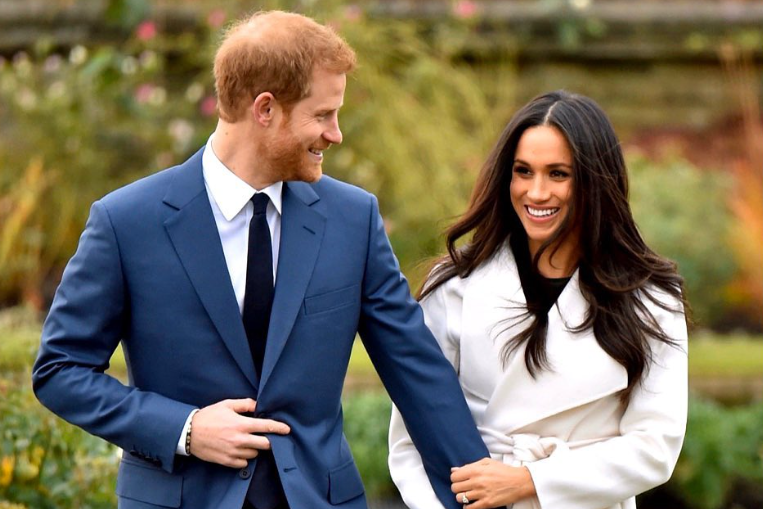Legal representatives maintain that Prince Harry ought to be granted the right to challenge the ruling that hinders his ability to pay for police protection.
The legal team representing the Duke of Sussex claims that the decision to prohibit him from funding his own police protection while in the UK was unlawful.
In a second legal challenge against the Home Office regarding his security arrangements, Prince Harry’s lawyers argued during a high court hearing in London for permission to pursue a case. They contested the ruling made by the executive committee for the protection of royalty and public figures (referred to as Ravec in court documents) that individuals should not be allowed to privately finance their own protective security.
In response, the Home Office’s lawyers argued against the notion that “wealthy people” should have the ability to “buy” specialized armed police protection.
Prince Harry’s lawyers emphasized that the decision made by Ravec contradicted the provisions outlined in the 1996 Police Act. According to the Act, the “chief officer of the police” has the authority to offer special police services “subject to payment.”
Harry’s renewed legal case pertains to his previous attempt to challenge the decision that limited his level of personal protective security during visits to the UK after stepping back from his royal duties and relocating to the United States.
Representing Harry, Shaheed Fatima KC highlighted that the case raised a significant matter of principle. She argued that Ravec’s position, which suggests that allowing payment for protective security undermines public confidence in the Metropolitan Police Service and goes against the public interest, cannot be reconciled with the fact that Parliament explicitly permitted payment for such services.
According to her statements in court, she pointed out that Ravec had failed to provide a principled or rational justification for the distinction it made between individuals within the Ravec cohort who were prohibited from privately funding their protective security, and other private individuals who could request such funding from the chief officer of police.
She argued, “Ravec has exceeded its authority and power since it lacks the jurisdiction to make such a decision in the first place.”
In response, Matthew Butt KC, representing the Metropolitan Police, argued that specialized policing entailed unique risks for officers and that Ravec determined what was in the public interest.
He stated, “It cannot be right that officers are expected to expose themselves to that level of risk not in the public interest but because the policing body has been financially compensated. That can only be justified with public interest.”
In their written submissions, the Metropolitan Police stated that it was incorrect for a policing body to place officers in danger in exchange for a fee paid by a private individual.
During the proceedings, Mr Justice Chamberlain inquired about the distinction between someone seeking special policing for a private event on private property, such as a festival, celebrity wedding, or football match, compared to the need for a bodyguard.
Harry’s lawyer clarified that this was not a case involving a bodyguard, but rather “protection at a specific location.”
Prince Harry argues that Ravec’s decision was illegal, unjustified, and that he was denied the chance to provide input before the decision was implemented.
Representing the Home Office, Robert Palmer KC argued that this matter did not concern crowd control at a football match, marathon, or similar event. Instead, it focused on specialized protective security for an individual.
He maintained that Ravec’s decision was not unlawful and merely established a policy principle.
There was legal ambiguity regarding whether the provision of protective security fell within the scope of the relevant section of the Police Act.
In the written submissions, it was stated, “The funding decision arose because … the claimant suggested, in connection with his first judicial review, that he was, or might be, it being unclear, willing privately to fund the protective security he sought, supplied by the Metropolitan police service.”
It further mentioned, “In essence, Ravec considered that it was not appropriate to support an outcome whereby wealthy individuals could ‘buy’ protective security from specialist police officers (potentially including armed officers), in circumstances where Ravec has determined that the public interest does not warrant that individual receiving such protective security on a publicly funded basis. That would be precisely the effect of the claimant’s claim.”
According to Palmer, Ravec, which comprises high-ranking officials from the Home Office, the Metropolitan Police, and the royal household, was not obligated to offer Harry an opportunity to present his case or make representations.
Furthermore, he stated, “Considering the nature of the arguments now put forward by the claimant, it is highly likely that such representations would have had little significant impact regardless.”
Palmer clarified that the funding decision “does not prevent any individual, including the claimant, from directly applying to any chief officer and attempting to persuade them to provide protective security as a special police service.”
He noted, “The fact … that the MPS has set out in its summary grounds that such an application to it would be likely to be refused is, practically, unsurprising where the MPS was represented on Ravec and agreed with the concerns of principle set out in the funding decision.”
This case is one of the six civil cases the duke is pursuing in the London courts.
The judge will deliver his ruling at a later date.

